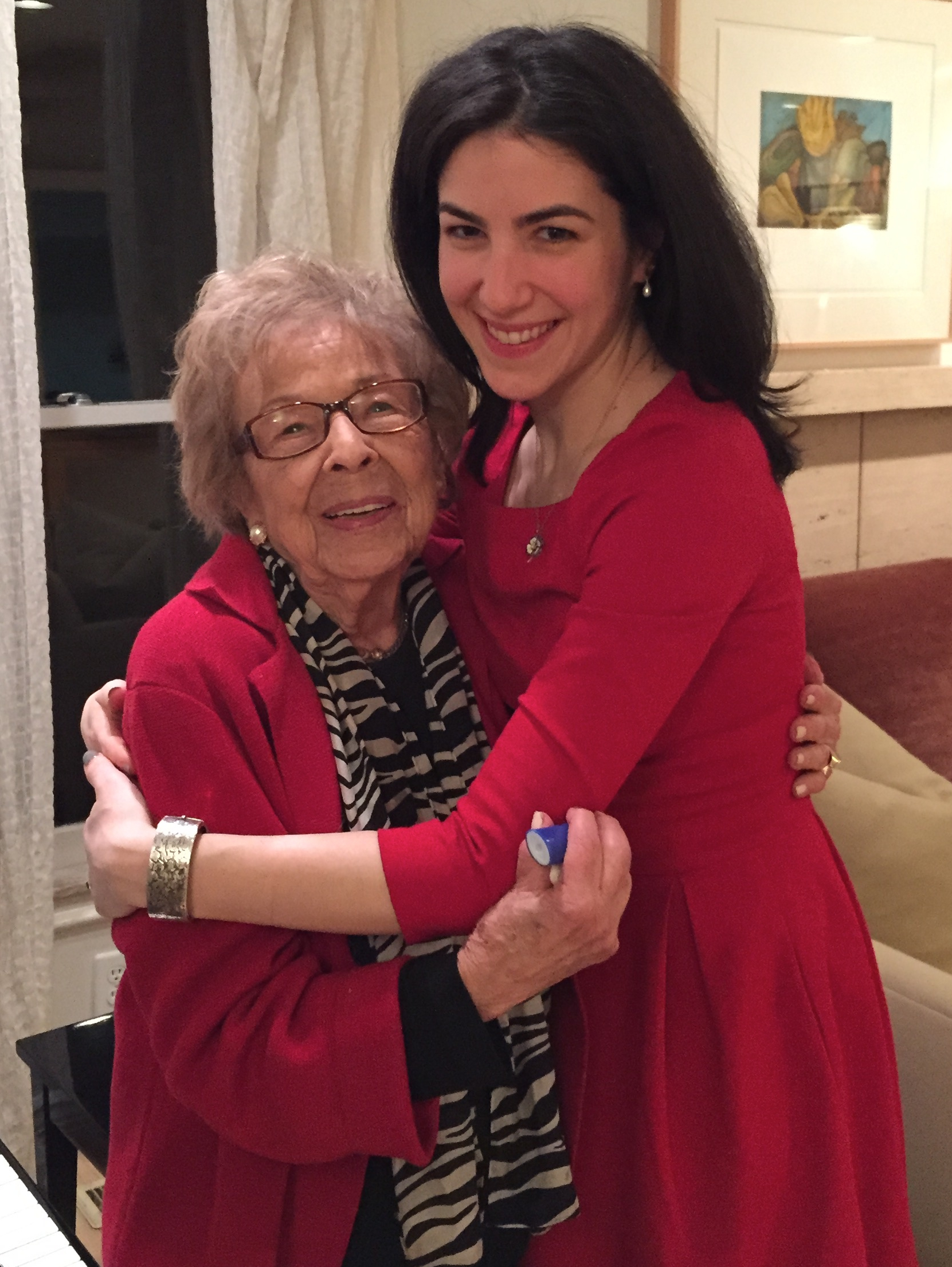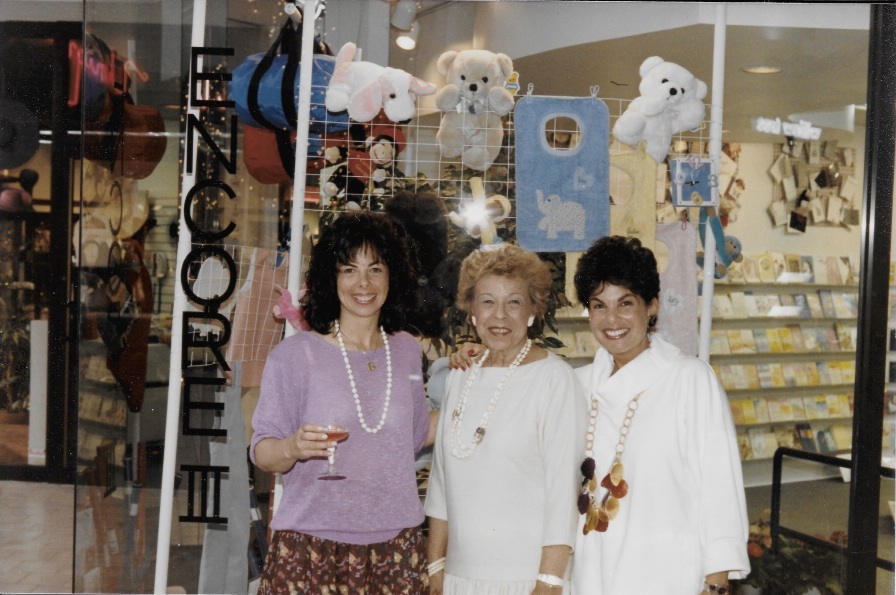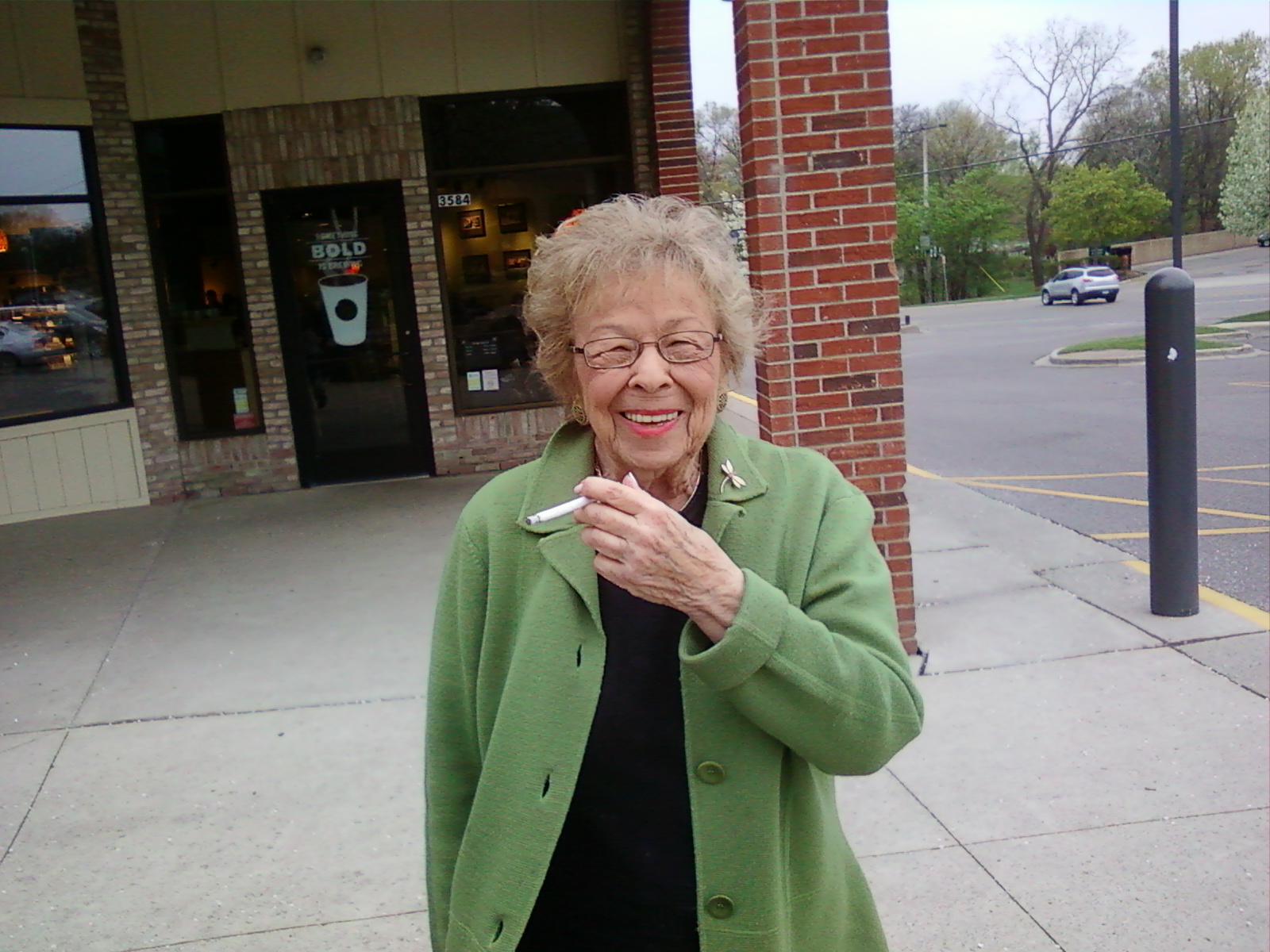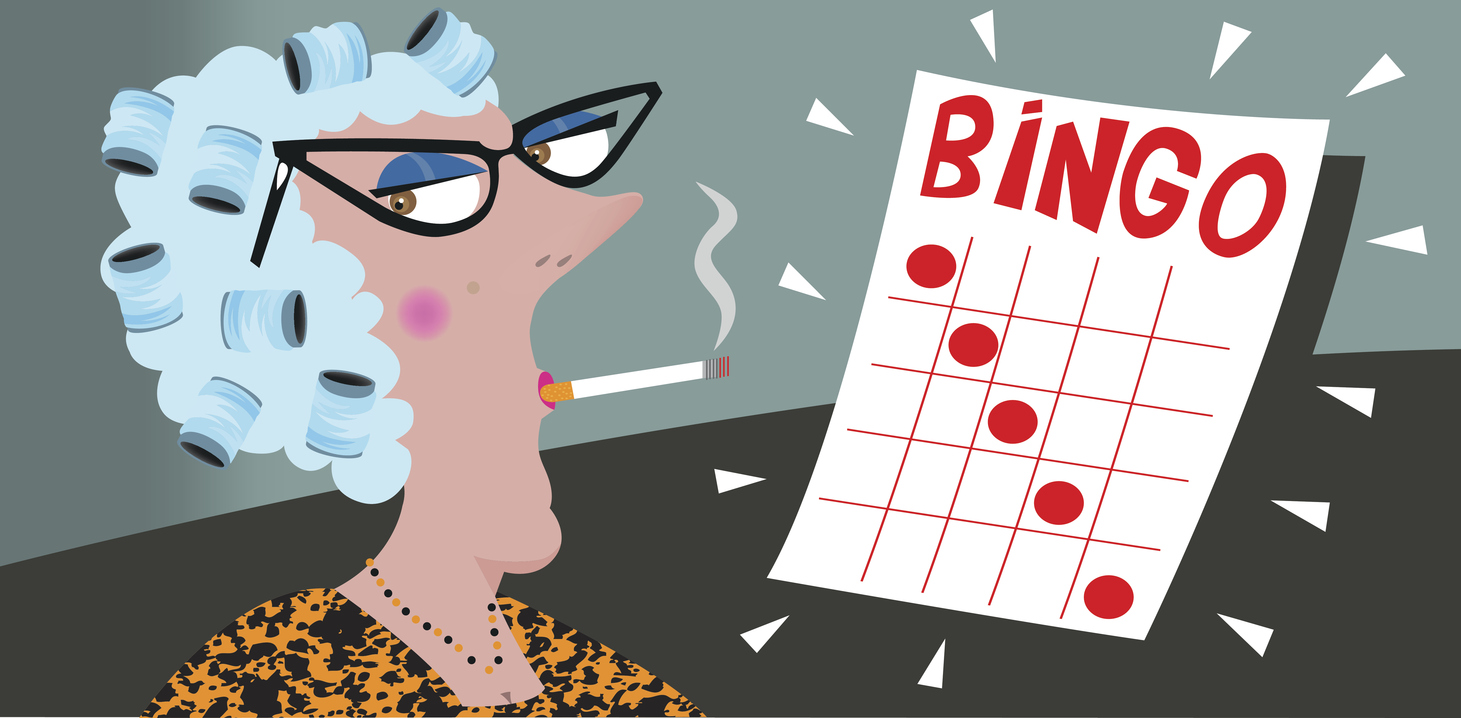“You really should take up smoking,” my grandmother told me when I was 14, staring at my hands in disgust. “It looks better than biting your nails.”
She sat across from me at our favorite Chinese restaurant dressed in her signature ensemble: a white blouse, black blazer, and crimson scarf tied neatly around her neck. Trying hard not to laugh, I digested her irreverent anecdotes between bites of fried rice.
Grandma Rita didn’t act like the other Jewish bubbes in the Detroit suburb where I grew up. I never saw her stirring a pot of matzah ball soup, lighting candles on Shabbat, or earning the respect of the rabbi; in fact, the only times I saw her enter a synagogue were for family celebrations. Before my cousin’s bat mitzvah, we caught her sneaking a cigarette behind a large potted plant in the temple’s atrium. “I’m going straight to hell,” she said. “I’ve heard it’s a lot more fun down there.”

As a child, my idea of the “traditional” Jewish mother/grandmother came from characters like Golde in Fiddler on the Roof or Ida in the classic ‘80s rom-com Crossing Delancey. These women were yiddishe mamas — never far from the kitchen, with seemingly endless reserves of energy to meet their families’ needs. Or, at their worst, they were over-anxious and meddling, unable to let their children and grandchildren live their own lives. According to Joyce Antler, author of You Never Call! You Never Write!, Jewish mothers have appeared in popular culture from the early 20th century onward — from the Borsht Belt to the Second City to the silver screen.
Antler argues that Jewish women have internalized these representations over the years, judging themselves and their family members against them. My grandmother, however, was proud not to fit the mold. At almost 97, she still tells me, “I’m your Auntie Mame.” In the 1950s movie, the title character, who is charged with raising her young nephew, lives a lifestyle of extravagant parties, exotic travels, and eccentric companions, but retains a unique brand of wisdom. Grandma Rita frequently quotes Mame’s most famous line: “Life’s a banquet and most poor suckers are starving to death!”
Grandma comes by her nonconformity naturally. Her own mother, my great-grandmother Sylvia, was a milliner who designed hats for the wealthiest women in Detroit. After long days in her shop, she’d meet friends at a nearby ballroom and dance until midnight. She bought a Model T, becoming one of the first women in the city to drive a car. She flouted social conventions to the point that her father was ashamed to show his face in public.
Unlike Sylvia, Grandma came into her own later in life. After a rocky marriage of almost four decades, she and my Grandpa Irv divorced before I was born. No longer in her husband’s shadow, she channeled her impeccable taste into opening a stationery store, Encore III. What I remember: her meticulously arranged window — and the ashtray, calculator, and fax machine that sat on her desk in the back room. Until her retirement at the age of 86, she made a habit of complaining about her bills, customers, and employees. Now, she admits, “The store was the best thing I ever did.”

When I was little, my friends’ grandmothers often had them over for feasts of brisket or blintzes. Mine invited me to her store, where she taught me how to write up orders and work the register. Other grandmas went to bed early. Mine went out on dates (the “virgin grandmother,” one impatient suitor called her), played competitive bridge several nights a week, and stayed up until 2 or 3 a.m. devouring biographies and mystery novels. Other bubbes traded their vices for vitamins and Valium. To this day, mine smokes two packs a day. She swears that coffee and cigarettes are the secret to her longevity, though she promises to quit when she turns 100. When people cough around her, she’s defiant: “Just pretend you’re at a barbecue!”
While others might have wished for a more conventional grandmother, to me, her irreverence has always been part of her charm, her gestalt. And, since she didn’t conform to a particular idea of what a Jewish grandmother — or a Jewish woman — should be, I felt free to be my own person, too. She helped me find the courage to move to New York, where I hardly knew a soul, six weeks after I graduated college. Like Grandma’s store, my move was the risk that made all the difference.
Our relationship only deepened after I left home, especially since she was always awake at 1 a.m. whenever I needed a late-night pep talk. I told her about the man who broke my heart. She stopped calling him by his name; forevermore, he was simply “the loser.” I told her about the man who was coming over the following night. “Have a little wine first,” she advised. I told her when I was having a rough time at the office. “The difference a day makes,” she told me. And when I was feeling overwhelmed by the wedding-planning process, she brought me back to reality: “Remember, it’s your wedding, not your marriage.”
She has also shared her take on aging: “Youth is wasted on the young.” While she hates growing old, she’s kept her sense of humor. “I’ve got to fix my teeth,” she jokes. “I want to look good at Kaufman’s Funeral Home.” In Cabaret, Liza Minnelli’s character, Sally Bowles, sings about her friend Elsie who died of “too much pills and liquor” but was “the happiest corpse [she’d] ever seen.” “I made my mind up back in Chelsea,” Sally vows. “When I go, I’m going like Elsie!”
“I’m going like Elsie too,” Grandma tells me, and lights another cigarette.
So, this Mother’s Day, I’ll pour myself a little schnapps, sing along with Liza, and recite Grandma’s trademark toast: “Here’s to those who wish us well… and all the rest can go to hell.” I won’t celebrate my grandmother for her kreplach or kugel, but for being unabashedly herself.




